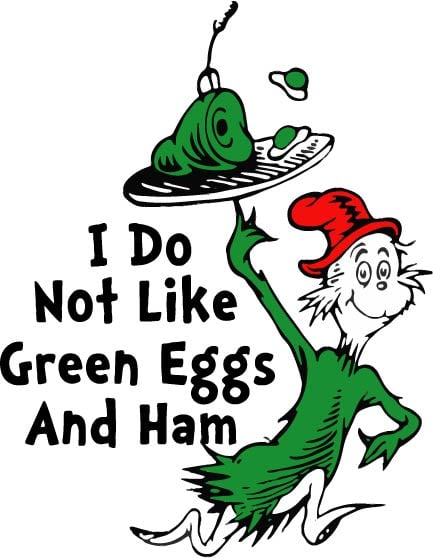This looks like “dropping an egg into boiling water” and not “bringing the water to a boil with the egg in it,” which is an important distinction.
I’ve never seen an egg where ten minutes of boiling doesn’t fully solidify the yolk.
Actually, it doesn’t even take that long. I mean, I guess ten minutes would do it, too.
I’m not sure that’s a uhhh credible source. But it cracked me up.
Also, is this starting from refrigerated eggs (USA-style) or room temperature (everyone’s else)? I assume this makes less of a difference with your second method.
They don’t seriously have refrigerated eggs, do they
Yes, eggs are washed which removes the protective layer that makes them safe without refrigeration. So our eggs look cleaner, but have to be refrigerated.
Edit. Looking into this a little more and it seems to be different ways to combat stuff like salmonella. I guess most of the world vaccinates the chickens, plus the cuticle on the egg prevents bacteria from entering through the shell. In the US we wash the eggs and refrigerate to prevent it.
This is correct, and whenever the topic comes up, there’s always a bunch of misinformation. Like you said, it’s two means to the same end. Early in the washing strategy, like a hundred years ago, some washed eggs from Australia were imported to England, and a bunch of people got sick from them, so Europe decide to go the other route. The US got the washing thing down and decided to keep with it. Today, both approaches work pretty well. Australia, Japan, and some Scandinavian countries also use washing. Worth noting that washing requires an infrastructure of shipping things around refrigerated.
Canadian here. I buy them from a fridge so I keep them in my fridge.
See what I mean? There are a lot of variables not listed here.
True and it doesn’t seem to care about start egg temp and number of eggs vs amount of water. Without that info it’s not that useful.
Does egg size not matter or what?
Good call. And elevation if high up. Possibly type of egg too. Even assuming all chicken eggs, some have different ratios of yolk to white. We might be in the weeds at this point though.
If you bring the water to boil before adding the egg it is much easier to remove the shell
Edit: I see my comment doesn’t really relate to your comment. I’m tired
Chef here. Use older eggs for boiling as they are far easier to shell than fresh eggs.
That’s a myth and unrelated. But throwing it into the cold water helps preventing the egg from cracking.
But timing it is surely much easier when the water is boiling. If you just slam it in cold water then you are at the mercy of whatever stove you are using
You start timing once the water starts boiling.
But its not like the not boiling but at 90 degrees Celsius water doesn’t affect the egg
Isn’t that how you’re supposed to do this?
It is. Bring the water to a boil, drop the egg(s).
No. If you throw the eggs in early and have them warm up with the water they’re less likely to crack.
But how do you work out how long they should be boiling, especially if you’re after somewhere in the soft boil sweet spot?
I measure from the moment the water starts to boil. 4:30 minutes is a good starting point if you want the yellow to be soft but as mentioned, amount of water, pot, your stove, egg size, it all affects the boiling time quite severely. I wouldn’t add or remove more than 15 seconds either if you want to find that sweet spot because it is definitely not like in the picture. 7-8 minutes is pretty much hard boiled for me, but maybe those are some really fat eggs.
Yeah, but then you have to watch your pot for the moment it starts to boil. It’s easier to just boil the water, drop them in and then set a timer.
Never ever had this problem. 🤷♂️
When you put the eggs in are they fridge-cold?
Yes, why? Does that help or shmelp?
When the eggs go from fridge cold to boiling hot I would assume that would increase the chances of them cracking once they got the water.
This isn’t a very good guide, since it doesn’t even take egg sizes into account. As a fan of egg, these timings are completely wrong for Large Lion Grade A eggs.
Lions don’t lay eggs.
That blimmin’ witch doctor lied to me again!!!
You’d think I’d learn my lesson after those magic beans…
Also anyone living above sea level would have severely undercooked eggs. I live almost a mile up and pasta takes two minutes longer to cook so i assume eggs do too.
Pretty sure most people are above sea level. But I’m no sea doctor.
Most of humanity lives on the coastlines. So technically yes. In any functional manner, no.
I’m not really sure such niche accounts need to be taken into consideration on every single guide to how to cook food.
I wonder how much altitude matters when boiling eggs
I can’t speak to specific numbers but it absolutely does. The higher the altitude, the lower the boiling point. The lower boiling point the lower the temperature you’re cooking with and you have to cook it for longer
This guide seems to be a bit off. I prefer 11-min-eggs, for the reason that there is not any liquid yolk present, if boiled that long. In this picture, it would resemble either the 13-min or the 15-min-egg. My egg-boiling altitude is 7 m above sea level for an average sized chicken egg, adding the egg to already boiling water.
Title does say larger size egg.
20 minute gang rise up.
I just use my instant pot, and I don’t have to worry about thinking about it after I hit start. They also peel perfectly every time.
But if you’re using water to cook hard boiled eggs, then just get one of these:
https://www.amazon.com/Lasubst-Timer-Boiling-Boiled-Changes/dp/B0BL28Q762/
This is about cooking eggs at various donenness levels, not just making hard boiled eggs. You would still need to pay attention to the time in an Instant Pot for that.
Right. I’m using the term “hard-boiled” synonymously with just “boiled egg”
It doesn’t work that way, though. And this doesn’t even refer to “a boiled egg”, it refers to boiling eggs.
Barring pedantry, I don’t understand the difference you’re inferring
The wording you have used so far suggests to me that, every time you boil eggs, you hard boil them. Not everybody does that. Some people soft or medium boil their eggs and variations in between.
So boiling eggs is not the same as hard boiling eggs.
That’s why I clarified.
You said you didn’t understand, so I explained. I didn’t realize you were being disingenuous.
It bothers me that 7 minutes looks more “done” than 9 minutes to my eyes.
interesting. i think it differs with the amount of water as well ad the size of the egg. i only start timing once the water starts boiling, and from that point on its 3.5 - 4 minutes depending on the egg.
How ar big? Post is unclear. Need banana for scale.
https://www.seriouseats.com/the-secrets-to-peeling-hard-boiled-eggs
It’s complicated
These gotta be bigger eggs.
When I book an egg for 9-10 minutes it looks like the 15 minute egg there
Hmm fair point, I guess it depends on the egg size
Could also be depending altitude / atmospheric pressure
It may be considering timer starting with the egg in cool water and boiling from there.
That’s exactly what I do. Cold water with eggs in
This doesnt seem kosher to me. 7-10 minutes is like the max
Are you using the word kosher as in its proper meaning, or colloquially? I didn’t find anything on time https://www.kosherinthekitch.com/halachot-in-the-kitch/kosher-eggs/
Colloquially, i just meant the times didnt match up with my own experience
7 for the best results 😋
i like 5-6 best :3
I think 5 would be the minimum I’d be willing to go to. The others just look too raw to me.
I love a good 15 if I’m out and about.

I do like to offer people an egg in this trying time.











